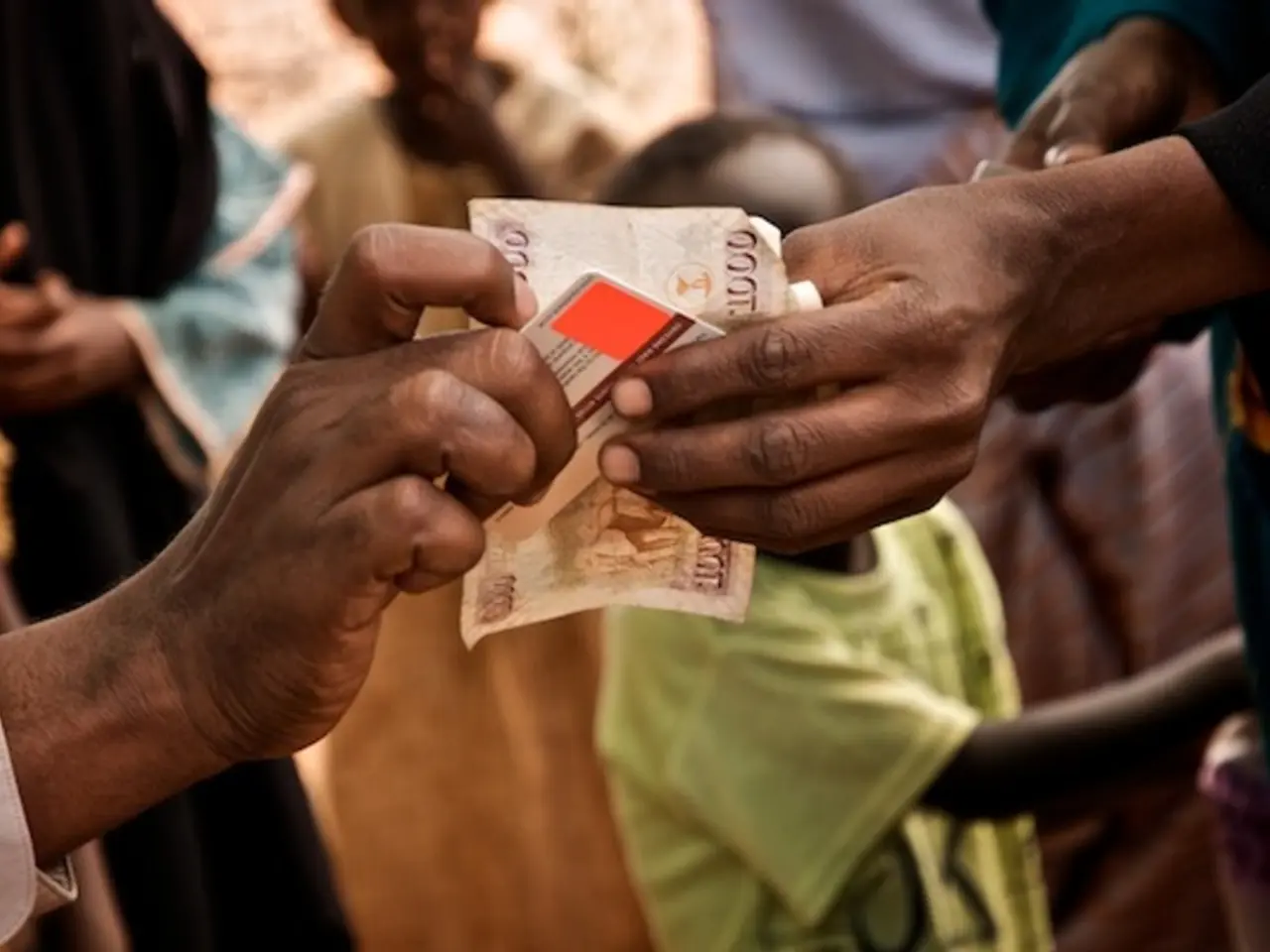Fintech company Nubank increases payment options by integrating dollar-tied stable cryptocurrencies.
In a groundbreaking move, Brazilian digital bank Nubank has announced plans to integrate dollar-pegged stablecoins into its credit card transactions, marking a significant step forward for the bank and the digital finance industry.
The announcement was made by Nubank's vice-chairman, Roberto Campos Neto, at the Meridian-2025 conference. The pilot project, which will initially launch in Brazil, aims to use stablecoins for everyday payments, eliminating the need for conversion to traditional fiat currency.
Nubank's decision to test stablecoins for credit card payments shows that the bank is closely observing the challenges in emerging markets and is looking for secure, stable payment options. This move positions Nubank as a leader in digital financial services in emerging markets.
Integrating stablecoins into existing credit card infrastructure is organizationally challenging, but Nubank has already proven its ability to think unconventionally in the crypto space. Traditional banks face challenges in integrating blockchain payment systems into existing infrastructures, but Nubank is poised to lead the way.
Using tokenized deposits as collateral for loans is a significant step for the bank, requiring a fundamental change in many processes. Compliance is mandatory for stablecoins, as they are under strict global scrutiny. Nubank must ensure all processes are legally compliant to avoid risks in the pilot project.
If the pilot project succeeds, regulatory bodies may need to reassess their frameworks to enable banks in emerging markets to integrate crypto-assets into core services. The long-term benefits of successfully integrating stablecoins into banking could include faster transfers, more efficient cross-border payments, and better access to credit for previously excluded users.
The pilot project for using dollar-pegged stablecoins in credit card transactions will initially launch in Brazil, with Mexico and Colombia potentially following later. The pilot project is set to begin testing payments using USDT or USDC later this year. If the pilot succeeds, stablecoins could become a regular, useful payment method, potentially forcing traditional banks to adapt or catch up.
In a world where digital finance is rapidly evolving, Nubank's pilot project could pave the way for a more inclusive, efficient, and secure financial system in emerging markets. The success of this project could signal a new era for digital banking, with stablecoins playing a key role in shaping the future of finance.
Read also:
- User Data Analysis on Epic Games Store
- Rachel Reeves conducts a discussion with Scott Bessent and financial executives, focusing on investment matters
- Hyundai accelerates production plans: Introducing 7 new N models, aiming for a sales figure of 100,000 units by 2030.
- Yasa, an electric car engine producer, plans to broaden its operations.







